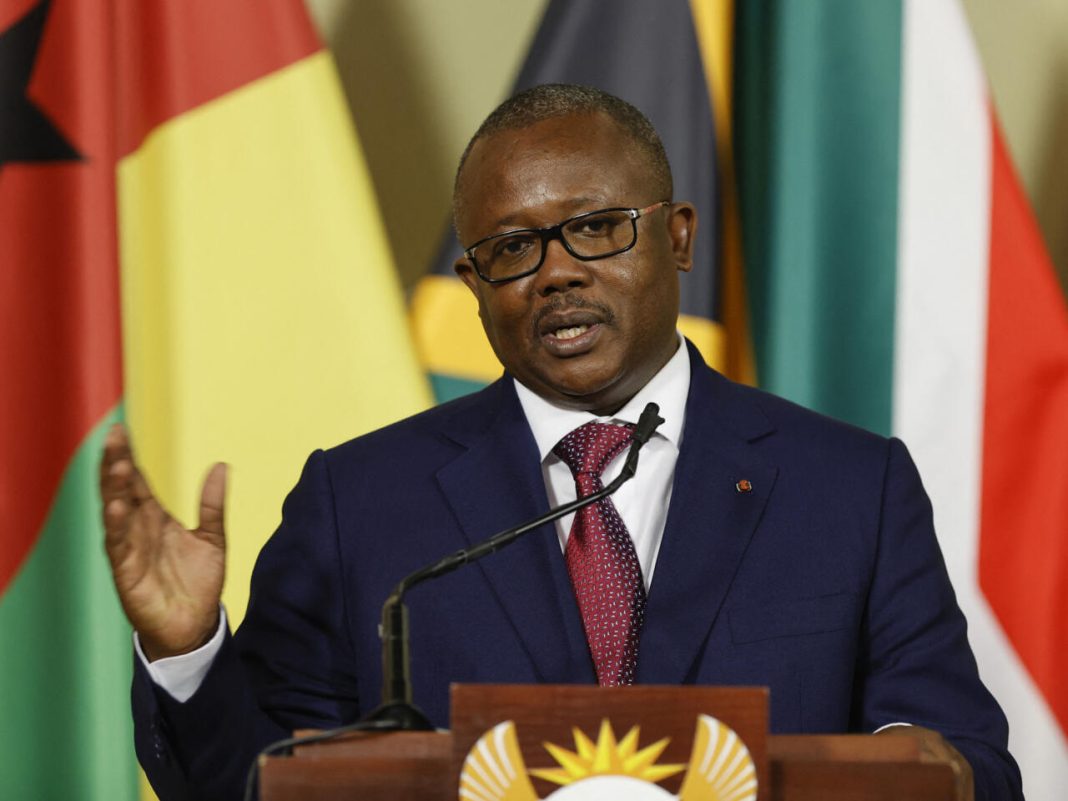A faction of Guinea-Bissau’s military has arrested President Umaro Sissoco Embaló following rising tensions over the country’s yet-to-be-declared presidential election results.
Heavy political uncertainty has gripped Guinea-Bissau after soldiers stormed the presidential palace on Wednesday, arresting President Umaro Sissoco Embaló around midday. The dramatic development occurred just days after the 23 November presidential election, whose official results were expected on Thursday.
Embaló confirmed his own arrest in a message to Jeune Afrique, stating that he was taken from his office at the palace but insisting no physical violence was used against him. However, eyewitness accounts and security sources reported gunfire near the palace and around the national electoral commission’s premises earlier in the day.
Senior military and government figures also detained
The operation did not target the president alone. The Chief of Defence Staff, General Biague Na Ntan, his deputy, General Mamadou Touré, and Interior Minister Botché Candé were also detained by the same faction of the armed forces.
Embaló described the events as a “coup d’État”, accusing the head of the army’s land forces of leading the action against him.
Election results at the centre of tensions
Guinea-Bissau’s political temperature had already been rising before today’s arrest. Although the electoral commission had not released official results, Embaló’s camp claimed he had won the election with 65 percent of the vote, based on their own internal tally.
His main challenger, Fernando Dias da Costa—an emerging political force viewed as the election’s dark horse—also claimed victory. The competing declarations deepened uncertainty ahead of the official announcement scheduled for Thursday.
A country with a history of political instability
Guinea-Bissau has witnessed a series of coups, attempted coups, and military interventions since independence, and regional observers fear that today’s arrest could trigger another period of instability.
The Economic Community of West African States (ECOWAS) and the African Union are expected to issue statements as the situation develops.
What next?
As of now, the president’s whereabouts remain unclear, and the chain of command within the armed forces appears fractured. With both camps claiming election victory and the military stepping directly into the political arena, the coming days will determine whether Guinea-Bissau moves toward mediation or deeper conflict.
Citi News will continue to monitor this developing story and provide updates as more details emerge.
